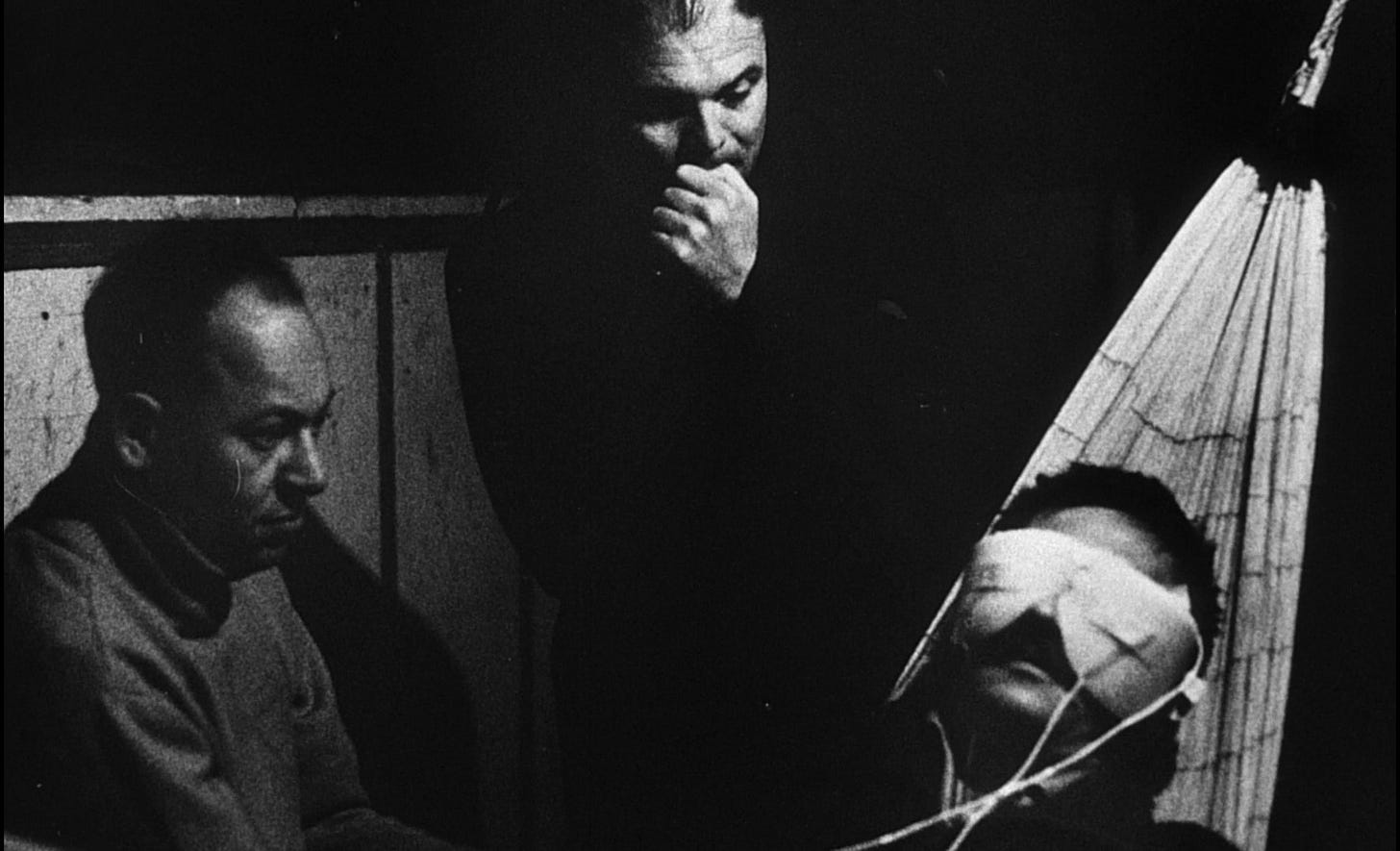◡◶▿ TIME-01 | New Systems of Time
⏱️ A new term has already begun at filmmaking school (in the future). | An introduction to New Systems of Time
📹 Unfound Peoples Videotechnic | Cloud-based filmmaking thought. ☁️

Dear eternal filmmaking students,
It’s autumn term at Unfound Peoples Videotechnic. Yes, we skipped spring and summer terms, but still. School semesters are tethered to the seasons outdoors1. If we named them sequentially, regardless of sabbaticals, it would now be spring term, and the mood would be very different. People would be confused.
The above preamble is pertinent because this term, we will explore unconventional modes of time and tempo in moviemaking.
I know that you have a lot to do this term. I know you have a lot on your mind! So, I’ll keep the lessons - the emails - short. If you’re not careful, you might read right through one before your tea has cooled enough to sip.
Let’s start straight away with a short introduction.
🦋 Bluesky | 📸 Instagram | 😐 Facebook | 🎞️ Letterboxd | 🌐 unfound.video
An introduction to New Systems of Time
You already know (or are learning within this sentence) that you can stretch and compress and chop and fuse moments, minutes, and days in a movie. You really can!
Those techniques are about how you handle time in our world. “In the editor’s seat.” It is quite standard to convey normal time or the hero’s weird experience of normal time to the audience using cuts and jumps and modulations.
But how about when movie-time itself is alien to the audience - even if it may seem quite normal to the hero?
It is not usual for the dreamer-uppers of narrative films to dream up new systems of time for their film worlds. Some do! Most don’t. They portray the experience of conventional time recognisably, albeit diced and spliced so as the story fits the allotted duration of the movie.
It is far more frequent for the makers of abstract films to employ new systems of time. However, the audience might not recognise that they are watching a new system of time. This is because abstract films don’t represent the things audiences usually see treated by time, such as humans having a chat or dogs discovering bodies in the woods.
How might time mutate in your movie’s diegesis to better serve your purpose?
How might this mutant or alien time, as it operates on your characters, interfere with the mediaphysical2 properties of your movie-object - and vice versa?
The narrative or abstract filmmaker might:
Anchor the flow of time within the movie world to another variable, such as light or anger;
Do away with linear time (and its associated loop-the-loops) and experiment with bubbles and veins and other shapes and consistencies of diegetic time;
Sidechain diegetic time to the production time that’s passing just outside the movie;
Invoke supplementary time systems;
for example.
You will need to find a way to represent your new time system through the existing laws of your own world and the edit suite. To make the match shots and jumps, the slow-mos and the montage sequences convey:
not a flashy, cine-grammatical representation of ‘normal time,’ but
how time functions differently within your movie universe’s environment, compared to its behaviour in one of our Tescos or black holes here on the outside.
We’ll have a look - or ten very brief partial looks - at some possibilities over the next weeks.
Maybe there will even be time for some industry gossip, funding opportunities, or pertinent song recommendations - if we can cover Time quickly enough!
This is not so much a pre-designed course as a batch of extracts from the UPV writings. Plus some other materials that I hope will inspire you as you make your Hollywood pictures, experimental videos, and grandchild Tik-Toks.
Remember, the best way you can support Unfound Peoples Videotechnic is by forwarding this lesson to your best friend. And your classmates, teachers, and colleagues. And the people on the bus.
If you’re new to the school, check out our writings on amateur filmmaking, rotting cinematography, mutant sound, labyrinthine set design, and daft software.
See you next Monday, 9.15 am, Greenwich Mean Time+1.
~Graeme Cole.
(Principal)
(and, in a looser fashion, the seasons in our hearts)
Mediaphysics:
The effect of real-world media materials, grammars, and ecosystems on the lives and bodies of the pretend characters and vice versa.
Media as turbulent channel between the concrete world and the collected audiovisual volumes.



